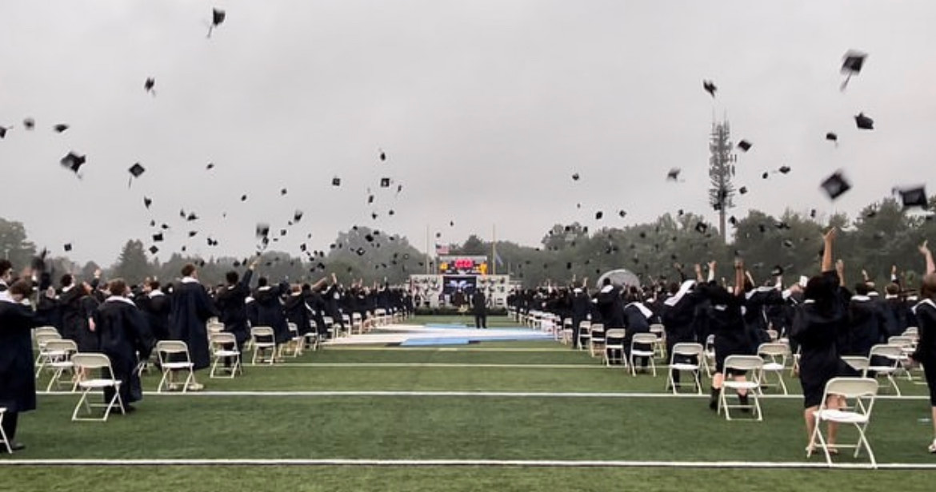Graduation is one of the most important occasions on a school leader’s calendar. This milestone signifies both an ending and a beginning–a fond farewell to years of student growth and learning at your school, and an exciting introduction to life’s next chapter. Follow the advice below from three school leaders on how to make the most of this moment.
Ben Carr, principal of Mountain View High School in Mountain View, WY
- Set up a graduation calendar by month document. Our graduation ceremony is usually held at the end of May. Share it with your secretary, and ask them each month to copy and paste tasks for the relevant people (counselor, maintenance person, custodian, front office staff, advisers, etc.) into an email. Our school year starts in August and ends in June, when we begin planning for next year’s graduation.
- Seat students by height.
- Have one person whose job is to be your “Number Two” the day of the ceremony. This is the person who runs down those last minute tasks (safety pins? lost hat?) so you can stay focused on the students before the ceremony.
- Take a picture with each graduating group and put it on your bulletin board to remind yourself next February that you have the most important job in education!

Dr. Suzan Harris, principal of Henderson Middle School in Jackson, GA
- If it’s not broken don’t change it. Once you have figured out a schedule that works well and ensures all ceremonial parts of the program can happen without losing the attention of the audience while still giving the feel of an intimate program, then do not change it. Use the same communication pieces, timelines, and other collateral that worked in the past. Consider tweaking something before a major change.
- Communication should be started early and should be ongoing until the day of the ceremony. Ensure that a two-way means of communication is available to both parents and students who may have questions.
- Do not break your own rules. If you have expectations such as a dress code or limited number of tickets, then stick to your rules. The minute you make concessions for one, you may have to make concessions for more.
- Practice, practice, practice. Practice makes perfect is definitely true. Take the time to practice all aspects of the ceremony with students and stakeholders. You want the ceremony to run as smoothly as possible.

Scott Wisniewski, assistant principal of Wayne Valley High School in Wayne, NJ
- Our goal is absolute efficiency. We graduate over 300 students each year and our programs last under an hour. The valedictorian, salutatorian, class president, student council president, and our principal all speak, but we leave a majority of the program to call the students up to receive their diploma cases.
- Students pick up their actual diplomas from our cafeteria right off the field. This allows for the counselors to congratulate the students one more time before they head off to celebrate for the night.


1 Comment
I’ve been through many graduation memories in my 19 years of education. After reading each of these tried-and-true “graduation tips”, I must say they sound pretty sound in general.
The goal is to execute an extensive ceremony in a compact time without compromising the integrity of the magical moment for each individual student who may have worked tirelessly to achieve his/her accomplishments.
I’m really impressed with AP Wisniewski’s statement of limiting the program to an hour. As precious as this moment is, the human condition can only endure what the parameters of the human anatomy can handle.
Thank you for reinforcing these crucial concepts concerning a smooth graduation in this blog !
Here’s to many more success stories !